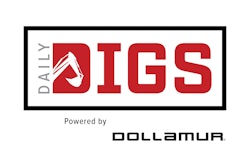|
Copyright 2013 Gannett Company, Inc. All Rights Reserved USA TODAY |
|
November 7, 2013 Thursday
First EDITION |
|
SPORTS; Pg. 7C
|
|
874 words
|
| Buyout stance can be shaky; Treating it as business expense saves coach taxes but may run afoul of IRS |
|
Steve Berkowitz, @ByBerkowitz, USA TODAY Sports
|
|
Their employment contracts were clear: When the head football coaches of 11 major public universities broke their contracts late last year and accepted jobs at other public schools, they faced responsibility for more than $7million in buyouts. Equally clear was what has become a basic tenet of college sports business: The coaches weren't going to pay. Their new employers were. That's where a different interpretation of tax law has gained a foothold. A handful of schools -- including Tennessee and Cincinnati this year -- have worded recent contracts to shield buyout payments made on behalf of coaches from being subject to income taxes. The schools paid substantial amounts last winter: Tennessee sent $1.4million to Cincinnati after hiring Butch Jones, and Cincinnati sent $943,000 to Texas Tech to cover Tommy Tuberville's buyout. Under federal tax law, it is undisputed that an employer's payment of an employee's personal obligation must be treated as taxable income to the employee. But a buyout payment also is viewed as a business obligation. Two tax law professors contend that gives schools the ability to treat the payment as a reimbursable business expense by the coach. Douglas A. Kahn, a professor at the University of Michigan law school, and his son, Jeffrey H. Kahn, a professor at Florida State's law school, advanced the idea in a law review article published in 2007. They acknowledged in the article that their assertion is vulnerable to dispute by the IRS. But in a recent interview with USA TODAY Sports, the Kahns said if the IRS challenged it, they think a coach who litigates the matter would prevail. "My view is, at a minimum, take the position and then discuss with the government to see whether you can get a settlement," Douglas Kahn said. "Why not at least explore that? I'm surprised that more schools have not done so." The accounting change could bring potential savings for hiring schools, which more and more have been luring new coaches by agreeing to pay not only their buyouts but also the associated income taxes. It also could bring substantial tax savings for coaches. An IRS challenge would put the coach at risk, at least nominally. If the IRS ruled the money is taxable, the coach would be responsible for any taxes owed as well as any interest and penalties, though it's possible a school would make the coach financially whole. Some schools are not willing to risk being on the losing side of a dispute with the IRS. "Institutions are skating on thin ice, with no precedent upon which to rely and unproven rationale, to take any position other than any payment of the coach's buyout obligation made by the new institution ... would be anything but taxable income to the coach," Indiana State general counsel Melony A. Sacopulos, who has an extensive background in business and tax law, said via e-mail. Jeffrey Kahn acknowledged "it could be that (a legal finding would be) this is really disguised compensation." The IRS "would want to fight this, because they don't want to get into an issue about (case-by-case determinations) when it's disguised compensation and when it isn't," he said. Maryland might have become the first public school to opt for the tax-avoidance approach in a contract with a football coach when it paid Randy Edsall's $400,000 buyout to Connecticut in 2011, treating the money as a reimbursable business expense by the coach. Maryland did it again in 2011 when it hired men's basketball coach Mark Turgeon and paid a $250,000 buyout to Texas A&M. Tennessee and Cincinnati also changed their approach from the way they handled previous buyouts when both schools hired football coaches after the 2009 season. On those deals, Tennessee paid Derek Dooley's $500,000 buyout to Louisiana Tech and covered an additional $286,782 in taxes, while Cincinnati loaned Jones the $700,000 he owed Central Michigan and set up a schedule to forgive the loan based on years of service. Tennessee officials declined to say why their position changed when they hired Jones. Tennessee athletics department spokesman Jimmy Stanton said via e-mail that the buyout section of Jones' contract was "self-explanatory, and we don't have any further comment." On its website Wednesday, the school reiterated its position that the buyout payment for Jones was a "necessary expense for the University of Tennessee to secure his services." In an e-mail Oct.28, Cincinnati assistant general counsel Doug Nienaber said the school's initial decision to treat Tuberville's buyout to Texas Tech as non-taxable came after Tuberville's representatives "asked us to consider business expense treatment for his buyout. We concluded that business expense treatment for Coach Tuberville's buyout was proper because the buyout was not compensation, it was a cost of the transaction that brought him to the Bearcats." On Monday, Nienaber said the school had reviewed the matter and changed its position. In an e-mail to USA TODAY Sports, he wrote, "Based on your inquiry, the University revisited its original decision and secured an additional legal opinion on this matter. As a result, we have revised our approach and are taking the necessary steps to treat Coach Tuberville's buyout from Texas Tech as personal income." |
|
November 7, 2013
|
Terms and Conditions Privacy Policy



































